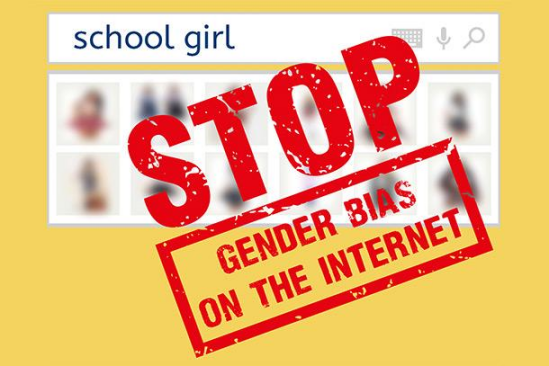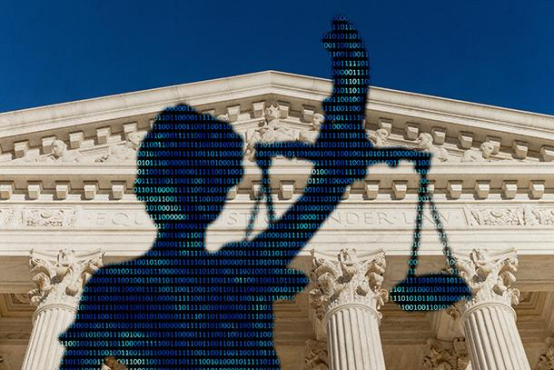Consideraciones Éticas de la Inteligencia Artificial: Ejemplos de Dilemas Morales

El rápido desarrollo de la inteligencia artificial (IA) ha introducido numerosas oportunidades en todo el mundo, desde mejorar los diagnósticos médicos hasta fomentar las conexiones humanas mediante las redes sociales y mejorar la eficiencia laboral a través de la automatización. Sin embargo, estos cambios rápidos también han suscitado importantes preocupaciones éticas. La preocupación se centra en el potencial de los sistemas de IA para introducir sesgos, exacerbar los problemas climáticos y amenazar los derechos humanos. Estos riesgos asociados con la IA podrían agravar las desigualdades existentes, perjudicando aún más a los grupos ya marginados.
Sesgo en la Inteligencia Artificial
Cuando buscas "los líderes más grandes de la historia" en un motor de búsqueda popular, podrías encontrar una lista predominantemente compuesta por figuras masculinas notables. ¿Alguna vez has contado cuántas mujeres aparecen? Si buscas "estudiantes mujeres", es posible que te encuentres con una página llena de imágenes de mujeres y niñas con atuendos provocativos. Por el contrario, cuando escribes "estudiantes hombres", los resultados muestran principalmente a jóvenes estudiantes masculinos ordinarios, con casi ninguno en ropa reveladora. Este sesgo de género proviene de estereotipos arraigados en la sociedad.
Los resultados de los motores de búsqueda no son neutrales. Procesan grandes conjuntos de datos y priorizan resultados basados en los comportamientos de los usuarios y la ubicación geográfica. Consecuentemente, estas herramientas de búsqueda pueden convertirse en cámaras de eco que respaldan y refuerzan los sesgos y estereotipos del mundo real.
¿Cómo podemos asegurar resultados más equilibrados y precisos? Durante el desarrollo de algoritmos, la creación de grandes conjuntos de datos para el aprendizaje automático y los procesos de toma de decisiones de IA, se deben tomar medidas para evitar o al menos reducir los sesgos de género.

Inteligencia Artificial en la Sala de Juzgado
La aplicación de la IA en los sistemas judiciales de todo el mundo se está volviendo cada vez más común, planteando numerosas cuestiones éticas que necesitan explorarse. La IA podría potencialmente evaluar casos y dictar justicia de manera más rápida y eficiente que los jueces humanos. La inteligencia artificial tiene el potencial de impactar significativamente en varias áreas, desde las profesiones legales y los departamentos judiciales hasta asistir a los cuerpos legislativos y gubernamentales en la toma de decisiones. Por ejemplo, la IA puede mejorar la eficiencia y precisión de los abogados durante las consultas y litigios, beneficiándolos a ellos, a sus clientes y a la sociedad en su conjunto. Los sistemas de software de jueces existentes pueden ser complementados y mejorados por herramientas de IA para apoyar la redacción de nuevos juicios. Esta tendencia creciente de utilización de sistemas autónomos se conoce como automatización judicial.
Algunos argumentan que la inteligencia artificial contribuye a un sistema de justicia penal más justo, ya que las máquinas pueden aprovechar su velocidad y análisis de datos a gran escala para evaluar y sopesar factores relevantes mejor que los humanos. Consecuentemente, la IA toma decisiones informadas desvinculadas de cualquier sesgo y subjetividad.
Sin embargo, existen numerosos desafíos éticos:
- Falta de Transparencia: Las decisiones de la IA no siempre son comprensibles para los humanos.
- No neutralidad: Las decisiones basadas en IA son susceptibles a inexactitudes, resultados discriminatorios y sesgos incrustados.
- Prácticas de vigilancia para la recolección de datos y protección de la privacidad de los usuarios de los tribunales.
- Nuevas preocupaciones respecto a la equidad, los derechos humanos y otros valores fundamentales.
¿Estarías dispuesto a aceptar un juicio por parte de un robot en la corte? Incluso si no entendemos cómo alcanzó una conclusión, ¿estarías dispuesto?

IA y Creación Artística
La aplicación de la IA en el sector cultural plantea consideraciones éticas fascinantes. En 2016, una pintura titulada "El Próximo Rembrandt" fue diseñada por una computadora e impresa usando una impresora 3D, más de 350 años después de la muerte del pintor. Para lograr esta hazaña tecnológica, los investigadores realizaron análisis píxel por píxel de más de 300 pinturas de Rembrandt y utilizaron algoritmos de aprendizaje profundo para aumentarlas, creando una base de datos única. Se capturó cada detalle de la identidad artística de Rembrandt para formar la base de un algoritmo capaz de producir obras maestras sin precedentes.
Para dar vida a esta pintura, una impresora 3D recreó la textura y las capas de las pinceladas en el lienzo, capaz de engañar a cualquier experto en arte.
Pero, ¿quién debe ser designado como el autor? ¿La empresa que curó el proyecto, los ingenieros, el algoritmo o… el propio Rembrandt?
En 2019, la empresa tecnológica china Huawei anunció que su algoritmo de IA fue capaz de completar los dos últimos movimientos de la Octava Sinfonía de Schubert, que comenzó pero quedó inconclusa hace 197 años. Entonces, ¿qué sucede cuando las máquinas tienen la capacidad de crear arte por sí mismas? Si los autores humanos son reemplazados por máquinas y algoritmos, ¿cómo se debe atribuir el derecho de autor? ¿Pueden y deben los algoritmos ser reconocidos como autores y disfrutar de los mismos derechos que los artistas?
El arte creado por IA requiere una redefinición de "autoría" para considerar equitativamente tanto el trabajo artístico de los creadores originales como los algoritmos y tecnologías responsables de crear el arte. La creatividad es la capacidad de concebir y producir contenido nuevo y original a través de la imaginación o la invención, desempeñando un papel crucial en las sociedades abiertas, inclusivas y diversas. Por lo tanto, el impacto de la inteligencia artificial en la creatividad humana merece una seria reflexión.
Aunque la IA es una herramienta poderosa para la creación, también plantea preguntas importantes sobre el futuro del arte, los derechos y la remuneración de los artistas, así como la integridad de la cadena de valor creativa. Se deben establecer nuevos marcos para distinguir entre piratería, plagio y creación original, y para reconocer el valor del trabajo creativo humano en nuestras interacciones con la IA. Estos marcos son cruciales para evitar la explotación del trabajo y la creatividad humanos y garantizar que los artistas reciban una compensación y reconocimiento adecuados, así como para preservar la integridad de la cadena de valor cultural y la capacidad del sector cultural para proporcionar trabajo decente.

Vehículos Autónomos
Los vehículos autónomos son capaces de percibir su entorno y operar con una mínima o ninguna intervención humana. Para garantizar que estos vehículos naveguen de manera segura y comprendan su entorno de conducción, una multitud de sensores en el vehículo capturan continuamente grandes cantidades de datos. Estos datos son luego procesados por el sistema de computadora de conducción autónoma del vehículo.
Los coches autónomos también deben someterse a un extenso entrenamiento para comprender los datos que recopilan y tomar decisiones correctas en cualquier situación de tráfico imaginable. Las personas toman decisiones morales diariamente. Cuando un conductor pisa el freno para evitar atropellar a un peatón que cruza la calle, está tomando una decisión ética, trasladando el riesgo del peatón a los ocupantes del vehículo. Imaginen un vehículo autónomo cuyos frenos fallan y se dirige a toda velocidad hacia una anciana y un niño. Basta con virar levemente para salvar a uno de ellos. Esta vez, la decisión no la toma un conductor humano, sino el algoritmo del coche.
¿A quién eligirías, a la abuela o al niño? ¿Crees que solo hay una respuesta correcta? Este es un dilema ético clásico, que resalta la importancia de la ética en el desarrollo tecnológico.
Recomendaciones sobre la Ética de la IA
UNESCO Publica el Primer Estándar Global sobre la Ética de la IA
En noviembre de 2021, la UNESCO publicó el primer estándar global sobre la ética de la inteligencia artificial, conocido como la "Recomendación sobre la Ética de la Inteligencia Artificial". Este estándar se aplica a todos los estados miembros de la UNESCO. La recomendación se basa en la protección de los derechos humanos y la dignidad, con principios fundamentales como la transparencia y la equidad en su núcleo, enfatizando la importancia de la supervisión humana sobre los sistemas de IA. Lo que hace que esta recomendación sea particularmente aplicable es su amplio alcance, cubriendo varias áreas de acción política, permitiendo a los responsables políticos traducir los valores y principios centrales en acción a través de dominios como la gobernanza de datos, el medio ambiente y los ecosistemas, el género, la educación e investigación, la salud y el bienestar social.
La recomendación interpreta ampliamente la IA como sistemas capaces de procesar datos de manera similar a un comportamiento inteligente. Debido al rápido ritmo del cambio tecnológico, cualquier definición fija y estrecha podría quedar rápidamente obsoleta e ineficaz para los esfuerzos políticos prospectivos.
Investigación Financiada por OpenAI sobre "Moralidad de IA" en Territorios Complejos
El 23 de noviembre de 2024, informes revelaron que OpenAI está financiando investigaciones en el dominio complejo de la "Moralidad de IA". Según TechCrunch, documentos presentados ante el Servicio de Impuestos Internos de EE.UU. revelaron una iniciativa donde el sector sin fines de lucro de OpenAI otorgó una subvención a investigadores de la Universidad de Duke para un proyecto titulado "Research AI Morality". Este programa de investigación, que se extenderá por tres años, cuenta con una inversión de $1 millón para estudiar cómo se puede dotar a la IA de conciencia moral.
Encabezado por los profesores Walter Sinnott-Armstrong y Jana Schaich Borg, quienes se especializan en ética práctica, Sinnott-Armstrong es reconocido en el campo de la filosofía, explorando áreas como ética aplicada, psicología moral y neurociencia. Su equipo en la Universidad de Duke se centra en resolver desafíos del mundo real, como idear algoritmos para determinar los destinatarios de trasplantes de órganos y equilibrar las opiniones públicas y expertas para mejorar la equidad de estos sistemas. El proyecto financiado tiene como objetivo crear algoritmos que predigan juicios morales humanos en dominios como la medicina, la ley y los negocios. El desafío radica en cómo opera la IA: los modelos de aprendizaje automático predicen resultados basados en datos de entrenamiento, a menudo reflejando opiniones culturales dominantes y potencialmente albergando sesgos.
IA desde una Perspectiva de Derechos Humanos
Diez Principios Centrados en los Derechos Humanos en la Ética de la IA
- Principio de Proporcionalidad y No Daño El uso de sistemas de IA no debe exceder lo necesario para lograr propósitos legítimos. Se deben realizar evaluaciones de riesgo para prevenir el daño potencial de dicho uso.
- Seguridad y Protección Los participantes de IA deben evitar y abordar daños innecesarios (riesgos de seguridad) y vulnerabilidades (riesgos de protección).
- Privacidad y Protección de Datos Durante todo el ciclo de vida de la IA, se debe proteger y promover la privacidad. Se deben establecer marcos adecuados de protección de datos.
- Cooperación de Gobernanza Adaptativa y de Múltiples Partes Interesadas Al utilizar datos, se debe respetar el derecho internacional y la soberanía nacional. Involucrar a diversas partes interesadas es esencial para realizar enfoques de gobernanza de IA inclusivos.
- Responsabilidad y Obligación Los sistemas de IA deben ser auditables y rastreables. Se deben establecer mecanismos de supervisión, evaluaciones de impacto, auditorías y debida diligencia para evitar conflictos con las normas de derechos humanos y amenazas al bienestar ambiental.
- Transparencia y Explicabilidad El despliegue ético de los sistemas de IA depende de su transparencia y explicabilidad (T&E). El nivel de T&E debe adaptarse a contextos específicos, ya que T&E puede entrar en conflicto con otros principios como la privacidad, la seguridad y la protección.
- Supervisión y Toma de Decisiones Humana Los estados miembros deben garantizar que los sistemas de IA no reemplacen la responsabilidad y obligaciones humanas finales.
- Sostenibilidad El impacto de la tecnología de IA en la "sostenibilidad" debe evaluarse, entendida como un conjunto de objetivos en evolución, incluyendo aquellos delineados en los Objetivos de Desarrollo Sostenible de la ONU.
- Conciencia y Alfabetización La comprensión pública de la IA y los datos debe mejorarse a través de la educación abierta y accesible, la participación cívica, las habilidades digitales, la capacitación en ética de IA y la alfabetización en medios e información.
- Equidad y No Discriminación Los participantes de IA deben promover la justicia social, la equidad y la no discriminación mientras aseguran que todos los individuos puedan beneficiarse de manera inclusiva de la IA.